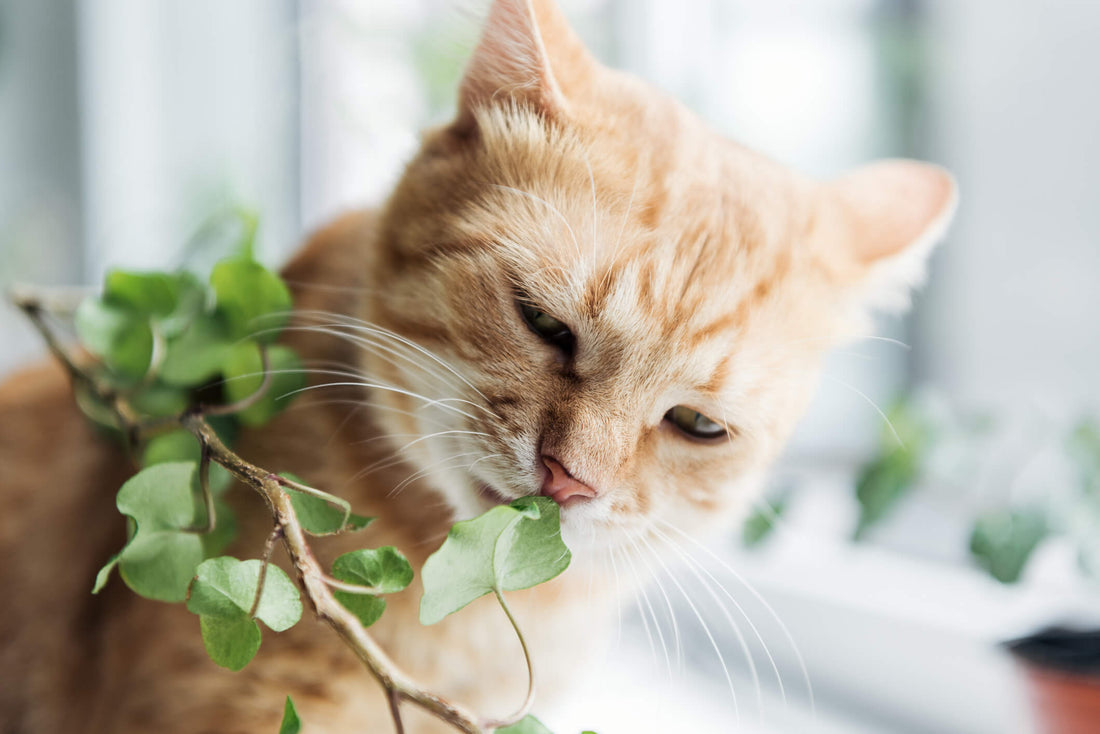
As You Buy Spring Flowers, Be Wary of These Toxic Plants for Cats
When flowers begin to bloom and plants start growing in the garden, pet owners sometimes like to bring their blossoming creations inside. While having plants inside is known to improve both mental and physical health in humans, its effects could be much more dangerous to your cats.
One of the most common sources of poisoning that vets say they encounter is accidental due to toxic plants. Often unbeknownst to pet parents, many plants are highly toxic to our feline friends, and a little munch of a leaf or even inhalation of the pollen could cause a serious reaction.
Stay informed of which plants are pet-safe and which are not to avoid an urgent trip to your vet this spring.
Common poisonous plants for cats
The number of plants that are toxic to cats may surprise pet owners, particularly since many of them are very popular floral plants to have around the house. Below is a list of some of the most common toxic plants to cats.
- Aloe Vera
- Amaryllis
- Autumn Crocus
- Azaleas
- Bird of Paradise
- Castor Bean
- Chrysanthemum
- Cyclamen
- Daffodil
- English Ivy
- Hyacinth
- Iris
- Kalanchoe
- Lilies
- Marijuana
- Narcissus
- Oleander
- Rhododendrons
- Sago Palm
- Spanish thyme
- Tulip
- Yew
(Please note, this is not an exhaustive list. The ASPCA and other online resources have more complete lists that include plant-specific symptoms if you would like more information.)
Many of these plants are what are called irritants, which means they cause inflammation in various parts of the body such as the mouth, throat and skin. Some plants can cause damage to particular organs like the liver, kidney or heart.
Not all parts of these plants are poisonous. Some only contain toxic compounds in the bulbs, stems or leaves. However, the risk is far too great when it comes to your cat’s health, so you should not keep any part of the plant in your home.
One of the most dangerous of all the above-mentioned plants is lilies. Inhaling the mere pollen of a lily could be enough to cause a severe and potentially fatal reaction in cats, regardless of how quickly care is delivered. Unfortunately, it is one of the most common causes of plant-related vet trips, especially around Easter.
Signs of poisoning
Knowing the signs of plant poisoning in cats is also very important, in case you bring home a plant and are unaware that it is toxic to your kitty. Poisoning symptoms may include inflammation (redness, swelling and itchiness), as well as more severe symptoms like difficulty breathing, drooling, vomiting, diarrhea and an irregular heartbeat.
If you notice any of these signs, call your vet right away and prepare to take your cat in for emergency care. Do not delay in seeking veterinary care while these signs are present, as poisoning can be fatal.
When you arrive at the vet, make sure to tell the vet what plant your cat was eating before symptoms started. This will help the vet identify the problem and deliver the most appropriate care in order to save your cat’s life.
Keeping cats away from plants
Cats are naturally curious and may decide to chew on your plants’ dangling flowers, leaves and vines. In most cases, it’s very difficult to keep plants out of your cat’s reach, so it’s better to not have potentially dangerous plants in your home at all.
However, you should try to keep your cat away from plants in general, so it doesn’t eat your precious flowers or accidently ingest something dangerous. Any plant, whether it is toxic or not, may cause gastrointestinal upset, so your pet may begin vomiting after eating. This is why proper identification of toxic plants is so important.
If you see your cat eating a plant, take it away immediately and remove any plant material from its skin or mouth. Then, identify the plant as soon as possible. If you are able to identify the plant as poisonous, call your vet right away. If you aren’t sure what the plant is, bring your cat into the vet and bring the plant along with you—the vet may be able to help determine what plant it is.
If you have non-toxic plants in the home, deter your cat from nibbling on them by keeping them in hard-to-reach areas like very tall shelves or in hanging planters that are out of your cat’s reach. Some homeowners have found that sprinkling cayenne pepper or placing citrus fruit peels around the base of the houseplant can also deter your kitty, since cats generally dislike these scents.
Additionally, you could give your cat a special treat by planting cat-safe plants like cat grass that it can nibble on freely.
Overall, make sure you know which plants you are bringing into your home and ensure they are not toxic to cats, or you could quickly be faced with a dangerous situation. Look for pet-safe plants to decorate your home with and keep you and your kitty happy and healthy!


